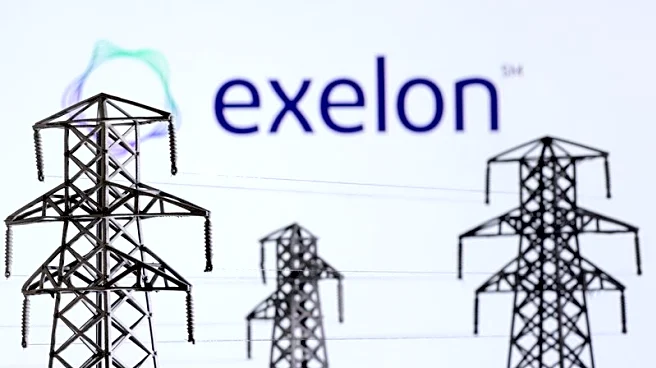What's Happening?
Researchers from Yokohama City University have made a significant breakthrough in understanding the cause of cognitive impairment, commonly known as 'brain fog,' in Long COVID patients. The study, led by Professor Takuya Takahashi, utilized a novel imaging technique to identify an increase in AMPA receptor density in the brains of Long COVID patients. This receptor density was directly correlated with the severity of cognitive symptoms. The findings suggest a potential target for treatment, as drugs that suppress AMPAR activity could mitigate brain fog. The study also demonstrated that imaging data could distinguish Long COVID patients from healthy individuals with high accuracy.
Why It's Important?
The discovery provides a crucial step forward in addressing the unresolved issues surrounding Long COVID, a condition affecting millions globally. By identifying a biological basis for the cognitive symptoms, the research opens the door for developing targeted therapies. This could significantly impact public health by improving the quality of life for those affected and reducing the socioeconomic burden associated with Long COVID. The study's findings may also encourage the healthcare industry to accelerate the development of diagnostic and therapeutic approaches for this condition.
What's Next?
Further research is needed to explore the therapeutic potential of targeting AMPARs in Long COVID patients. Clinical trials may be initiated to test drugs that can modulate AMPAR activity. Additionally, the healthcare industry might focus on developing diagnostic tools based on the imaging techniques used in the study. These efforts could lead to more effective management and treatment of Long COVID, potentially alleviating the condition's impact on patients and society.










